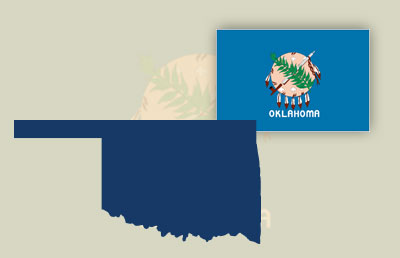Oklahoma Consumer Loans and Supervised Lenders

Oklahoma Modifies Provisions Regarding Consumer Loans
The state of Oklahoma has recently passed House Bill 1151, regarding convenience fees on consumer loan payments. These provisions are effective on November 1, 2018.
The new provisions state that, in addition to the typical loan finance charges permitted by statute, a lender may also charge a “convenience fee” if a borrower makes his or her loan payment by debit card, electronic funds transfer, electronic check, or other electronic means. The purpose of the fee is to offset the lender’s costs for processing electronic payments.
The bill then sets limits on convenience fees. A convenience fee charged by a lender may not exceed the lesser of either the actual cost to the lender of electronic processing or 4% of the transaction amount.
If a lender charges a convenience fee, the lender must notify the customer of the fee amount prior to completing the electronic payment transaction. The lender must allow the customer to then cancel the transaction if he or she wishes without incurring a fee. If a lender charges a convenience fee for electronic transactions, the lender must also allow the borrower to make loan payments by check, cash, or money order, without a convenience fee.
Finally, the bill adds that if a borrower elects to make payments by debit card, electronic funds transfer, electronic check, or other electronic means, and a convenience fee is properly imposed, then the fee will be nonrefundable.
Oklahoma Amends Provisions Regarding Supervised Lenders
The state of Oklahoma has recently passed Senate Bill 1493, amending its provisions regarding supervised lenders and the sale of goods by licensees, authorizing the sale of goods under certain conditions, and stating conditions for licensees to sell goods. These provisions are effective on November 1, 2018.
The updated provisions first explain that in general, licensees who are authorized to make supervised loans may not engage in the business of making sales of goods at any location where supervised loans are made. The Bill then lays out several exceptions.
First, licensees may make sales of goods through vending machines at the location where supervised loans are made. These locations must be separated from any location in which merchandise is sold or displayed, and must be accessible only by a passageway that is not open to the public. Second, licensees may sell other goods approved by the Administrator of the Department of Consumer Credit that are paid for by a consumer in cash, and not with the proceeds of a loan by the licensee who is also making the sale.
The Bill then clarifies that a sale of goods or services pursuant to a lender credit card or similar arrangement made at a place of business other than that of a licensee is not a violation of the provisions. And in addition, an occasional sale of property used in the ordinary course of the business of the licensee, or a sale of items repossessed by the licensee does not violate these provisions.
Zachary Pearlstein, JD, is a Regulatory Compliance Director with CLA's Mortgage Advisory Division. He joined CLA on January 1, 2014, as part of its acquisition of Bankers Advisory, Inc. Zachary oversees Mortgage Advisory's regulatory compliance team, which focuses on federal and state compliance, fair lending, and the Home Mortgage Disclosure Act (HMDA). He is a graduate of Brandeis University and earned his juris doctor at Suffolk University Law School. He is admitted to the Massachusetts Bar.

Comments are closed.